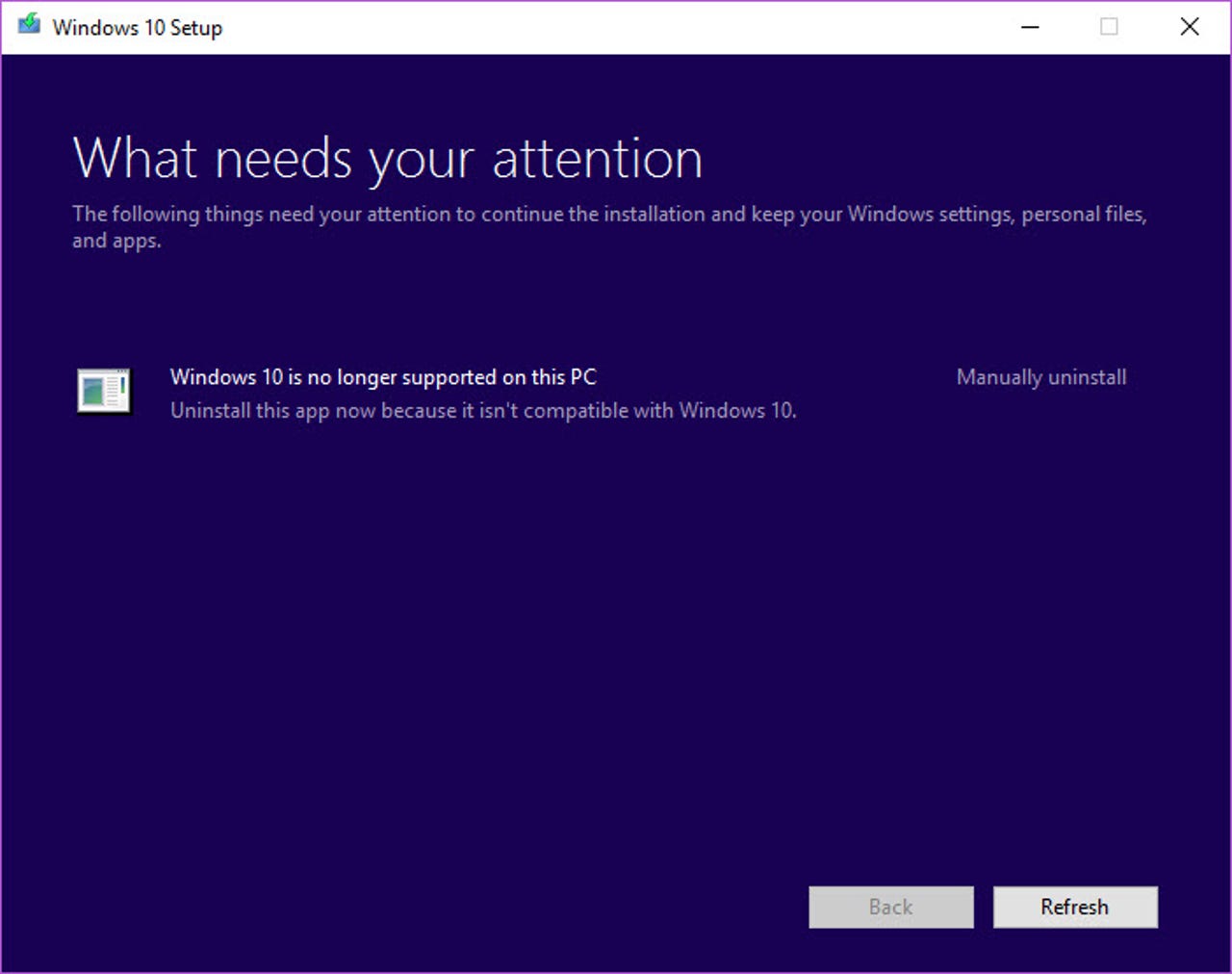Microsoft agrees to extend support deadline for Clover Trail PCs


Some three- and four-year-old PCs are unable to install the latest Windows 10 update
Windows 10 no longer supported?
Microsoft finally broke its silence on the status of devices built on the Intel Clover Trail CPU family.
Owners of those devices who had taken advantage of the free Windows 10 upgrade offer discovered recently that those PCs were unable to upgrade to the Windows 10 Creators Update, released in April 2017 and now rolling out widely to the installed base of Windows 10 PCs.
In an e-mailed statement, a Microsoft spokesperson confirmed today that no software fix is on the way. But in a major shift in its "Windows as a Service" policy, Microsoft agreed to continue delivering security updates to those devices for another six years. Under the existing policy, those security updates would have ended in early 2018.
The full statement follows:
With Windows 10, we introduced Windows as a Service, a model for continuous value delivery via twice annual feature updates and monthly quality updates. Along with this updated delivery cadence, we adjusted our support lifecycle policies to reflect the Windows as a Service model. Recognizing that a combination of hardware, driver and firmware support is required to have a good Windows 10 experience, we updated our support lifecycle policy to align with the hardware support period for a given device. If a hardware partner stops supporting a given device or one of its key components and stops providing driver updates, firmware updates, or fixes, it may mean that device will not be able to properly run a future Windows 10 feature update.
This is the case with devices utilizing Intel Clover Trail Atom Processors1 today: they require additional hardware support to provide the best possible experience when updating to the latest Windows 10 feature update, the Windows 10 Creators Update. However, these systems are no longer supported by Intel (End of Interactive Support), and without the necessary driver support, they may be incapable of moving to the Windows 10 Creators Update without a potential performance impact.
We know issues like this exist and we actively work to identify the best support path for older hardware. As part of our commitment to customers, we will be offering the Windows 10 Anniversary Update to these Intel Clover Trail devices on Windows 10, which we know provides a good user experience. To keep our customers secure, we will provide security updates to these specific devices running the Windows 10 Anniversary Update until January of 2023, which aligns with the original Windows 8.1 extended support period.
The affected devices include those running Intel Atom Processors Z2760, Z2580, Z2560, Z2520. Analysts estimate that at least 10 million of those devices, primarily hybrid PCs and small tablets, were sold in 2013 and 2014 as part of the first wave of Windows 8 devices.
If you own a PC with one of the now-unsupported CPUs, you can install the Windows 10 Anniversary Update, but that's the end of the line. That device will be blocked from installing any further feature updates but will continue to receive reliability and security fixed in what Microsoft calls "quality updates," which are delivered on the second Tuesday of every month.
This policy change throws a very large monkey wrench into the "Windows as a Service" machine. If the idea was to gradually but inexorably move Windows customers to current versions, reducing the support burden to a handful of recent releases, this decision undermines that goal.
The impact of the change on Microsoft's engineering processes is mitigated to a degree by the fact that Microsoft released the Anniversary Update as a Long Term Servicing Branch (LTSB) release in 2016. In effect, owners of Clover Trail devices will be treated as if they had installed the LTSB release.
To check whether your device contains one of the unsupported processors, see Windows 10 no longer supported? How to tell if your PC is eligible for latest version.